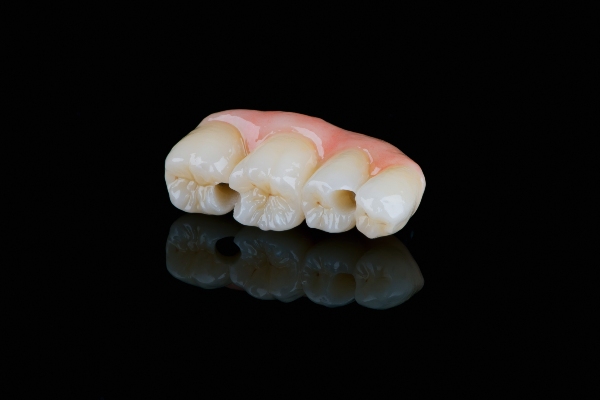Root Canal Therapy Options for a Chipped Tooth

Unfortunately, sometimes a chipped tooth can cause serious problems. It may even require root canal therapy to fix it. If you're unfamiliar with what a root canal is, it may sound a bit overwhelming. However, this procedure is routine, and patients walk away with a brand new smile. In this guide, we will go over root canals to know what choices are available to you. Learning more about this procedure will help you make the appropriate decision for your oral health.
What is a root canal?
You may not know what a root canal is, but rest assured it is a simple procedure that dentists regularly perform. To begin, a dentist will use a small drill to remove decayed or infected parts of your teeth. It’s a mildly invasive procedure that only needs a local anesthetic. After they have cleared the inside of your tooth, they will disinfect it, fill it, and close it up with a crown to prevent the exposed inside from decaying any further. It will usually take a couple of hours from start to finish.
When does a chipped tooth need a root canal?
Your teeth can break in many different ways. So, you don’t necessarily need a root canal just because part of your tooth has broken off. Smaller, more minor breaks may only need a simple treatment such as dental bonding. However, if the chip is more serious, then a root canal might be necessary. Your dentist will examine the chipped tooth in order to determine which solution is right for you.
The pulp inside your teeth is the part in the center that has nerves, connective tissue, and blood vessels. If this part becomes exposed, you probably need a root canal, especially if it has been exposed for enough time to become infected, and you start to experience tooth decay. While this can occur when part of your tooth breaks off, it can also happen when your tooth cracks but doesn’t chip.
There are some symptoms that you can use to help determine if you need a root canal. Pain is perhaps the obvious one, but sensitivity to temperature, tooth discoloration, and swelling in your gums can also be diagnostic. If you have a chipped tooth, make sure to see your dentist as quickly as possible, especially if you are experiencing any of the above symptoms.
What different options are available?
There are a few options that can be utilized instead of root canals. Talk to your dentist to see if any of them are options for you. One is called direct pulp capping. A special material is placed over the pulp to protect it and help it heal; then, the tooth is filled. However, this only works when very little of the pulp is exposed, showing no signs of infection.
Another option is tooth extraction. The entire tooth will be permanently pulled from your mouth. This is usually utilized when the damage is so severe that a root canal won’t help to repair it. Once it’s pulled, it can be replaced with dental implants, dental bridges, or partial dentures.
As you can see, there are many options available to help get your smile back to what it once was. The condition of your tooth largely determines the appropriate path forward. Your dentist can help you decide which solution is the best for your needs. There are many factors that will determine the right solution for you.
What happens after the procedure?
Thankfully, root canals are relatively minor procedures, and minimal aftercare is needed. Any residual pain should be able to be managed with over-the-counter pain medications. You can eat and drink right after the procedure, as well, but you should eat soft foods at first, especially if you have a temporary crown. Sticky foods and hard food can pull out or damage temporary crowns, and hot or cold foods can cause pain in sensitive gums. Your dentist can provide a more thorough breakdown of what to expect during recovery and how you can best protect your teeth during the healing process.
Discuss root canals with your dentist
If you have broken teeth, then it's important that you speak with your dentist right away. You can learn about the various options available to you and determine which solution is the best for your circumstances. Reach out to your dentist today to learn more about root canals and other options that may restore your smile.
Request an appointment here: https://www.mysaratogadentist.com or call My Saratoga Dentist PLLC at 5186753094 for an appointment in our Saratoga Springs office.
Check out what others are saying about our dental services on Yelp: What Should I Do If I Chip My Tooth in Saratoga Springs, NY.
Recent Posts
A chipped tooth can affect your smile's appearance and oral health, leading to discomfort, sensitivity, and self-esteem issues. Fortunately, there are several effective options to restore a tooth's natural look and strength. A variety of treatments are available, depending on the severity of the chip, its location, and your treatment goals.A chipped tooth can result…
A chipped tooth often occurs unexpectedly, often from biting into something hard, a fall, or an oral injury. While some individuals do not mind that they experienced a minor chip, patients with more severe chips often require professional treatment to avoid cosmetic and overall oral health issues. Cosmetic dentists offer a variety of treatments that…
A chipped tooth may seem like a minor issue, but it can lead to several complications if left untreated. By taking immediate action, you can prevent pain, preserve tooth structure, and reduce the risk of further damage. A general dentist can evaluate the extent of the chip and help restore the tooth to maintain a…
Treating a chipped tooth is important, even if the damage is small. A general dentist can treat this type of dental issue. The solution to the chipping will depend on the degree of damage. Here are the details on how a dentist can repair a chipped tooth.The dentist can offer this minimally invasive and inexpensive…


